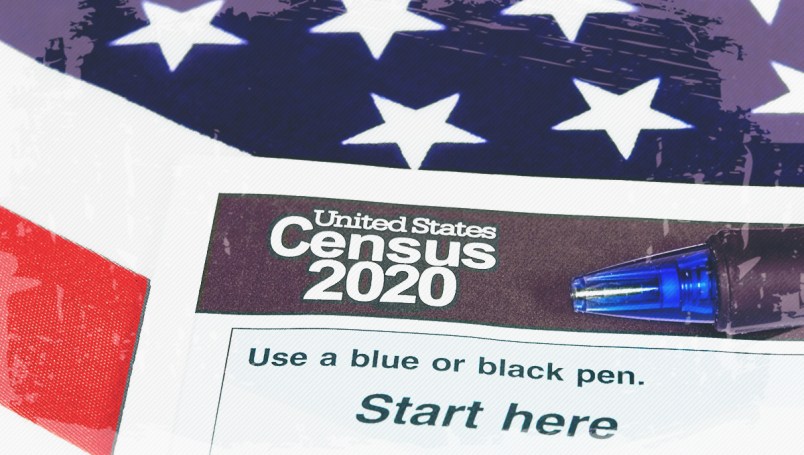A federal judge in Maryland on Monday explained why he wanted another look at potential racial animus behind the Trump administration’s census citizenship question, with an opinion that said it “is becoming difficult to avoid seeing that which is increasingly clear.”
U.S. District Judge George Hazel moved last week to have an appeals court send the case back to him, after new evidence put forward by the challengers suggested a discriminatory intent in adding the citizenship question to the census.
“As more puzzle pieces are placed on the mat, a disturbing picture of the decisionmakers’ motives takes shape,” Hazel said in his opinion Monday.
The challengers in the case asked that he take another look at the issue after they found relevant evidence in the files of a now-deceased GOP redistricting consultant, Thomas Hofeller.
The development was an incredible twist in what has already been an extraordinary legal battle over the census citizenship question. Any day now, the Supreme Court will hand down a decision in a separate case challenging the legality of the Trump administration’s move. It’s unclear whether this dispute in Maryland will remain live after the justices announce their ruling in that case.
If the appeals court that is currently weighing the Maryland case sends it back to Hazel, he will reopen discovery for no more than 45 days, his opinion Monday said.
The new evidence, Hazel said, points to a “possible, if not likely, conclusion that the decisionmakers adopted Dr. Hofeller’s discriminatory purpose for adding the citizenship question.”
Hofeller’s files included a secret study he did in 2015 that found a redistricting overhaul, in which noncitizens were excluded from the count to draw districts, would boost Republicans and non-Hispanic whites. The study said a census citizenship question would be necessary to make the overhaul workable. Additionally, found among his files was a paragraph he apparently ghostwrote that made it into a draft of a request to add the citizenship question. That draft was given to a Justice Department official as he worked on the administration’s formal justification for adding the question.
“Plaintiffs’ new evidence potentially connects the dots between a discriminatory
purpose—diluting Hispanics’ political power—and Secretary Ross’s decision,” Hazel said.
The Department of Justice had argued that the effect that Hofeller was describing in the 2015 study was separate from the theory that the challengers had put forward in the trial: that the question would create an undercount that would diminish Hispanics’ and other immigrant groups’ political power.
“[E]ven if Dr. Hofeller’s study evidences a different approach, the fact that yet another person was providing input into the decision-making process that was based in discriminatory purpose, with no counterbalancing reasoning other than one the Court found to be pretext, provides more weight to Plaintiffs’ position that Defendants’ ultimate motivation in adding the citizenship question was discriminatory,” Hazel said. “Additionally, there is a basis to conclude that Dr. Hofeller’s views directly impacted the decision. Thus, at the very least, Plaintiffs have raised a substantial issue.”
Hazel also addressed the Justice Department argument that taking another look at the discriminatory intent issue would be prejudicial against the government, because of the deadline at the end of this month to print the census forms.
Given that, “on his path to adding a citizenship question, Secretary Ross bulldozed over the Census Bureau’s standards and procedures for adding questions, at times entirely ignoring the Bureau’s rules,” Hazel wrote, “any prejudice that Defendants now face is partially of their own making.”
Read the opinion below:






